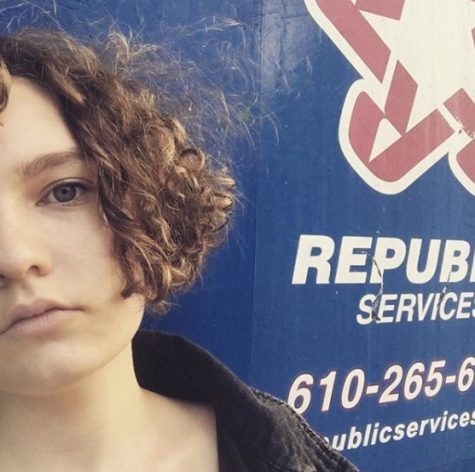A Critique On Harriton’s Student Council
If we want to see real student advocacy, we need to change our priorities.

Student Council celebrates at Dr. Harriton, the biggest event of the year.
This article was written at the beginning of May. It has no intention of devaluing the work of the Harriton Student Council nor exhibiting it as a subpar organization. Harriton Student Council does incredible work, and members dedicate countless hours to organize the successful Harriton events that we know and love. I have endless respect for all participants, and I hope they will read this article as a structural critique and find ways to make this organization more balanced and inclusive.
‘Tis the season for the general Student Council elections, an exciting time for the new officers and members, as they envisage the future of Harriton. Unfortunately, I am one who cannot share in their excitement. As someone who was in Student Council for a year and has observed for two more, I have witnessed some glaring issues within its construction, and I feel that they need to be shared with the student body.
First, our Student Council functions almost entirely as a fundraising organization for itself, the Lower Merion Scholarship Fund, and other charities of their choosing. This is by no means bad; community outreach and donations do a lot of good in the world. However, if this is its primary function, it is not serving as a Student Council.
The last real change made to student life that I can remember is when former Vice President Sam Catania got Netflix unblocked from our student computers. However, Dr. Harriton and Made on the Main Line take a huge amount of planning and brainstorming, so time is by no means wasted. In meetings, members are mostly asked about ideas for these two main events and other fundraising ideas. However, there is almost no focus on the improvement of student life in this club regardless of the name “Student Council.” If students have a problem, they generally go straight to the Harriton or LMSD administration.
However, the Student Council is supposed to be a council of students who advocate for our rights and ideas, so that we have a substantial presence when we feel that our education and experience needs improvement. But right now, the organization is not equipped to make this a focus, and the current officers, whoever they may be, have no training because their Student Council years have been focused entirely on fundraising.
For a fundraising-centered organization, it only makes sense that the people who raise the most money (and therefore the best fundraisers) are granted opportunities, experience, and success. However, the first place people often ask for funds is within their immediate and extended families. In Harriton, where there is a huge range of socioeconomic representation, this gives an unfair advantage to people with wealthy families who are willing to donate hundreds of dollars at a time. Additionally, many of the wealthier families in our community have connections to other wealthy families and large area businesses, allowing for even more donations to come in that way, whereas middle-class families are left with little fundraising guidance and fewer resources than those of other Harriton students.
I rarely see members independently organize a bake sale or employ creative tactics to meet their fundraising quotas because the norm for Harriton Student Council fundraising is to contact the people that you already know. But many at Harriton don’t have connections with people who are willing and able to give hundreds of dollars at a time. This system leaves those students in the dust, while others who raised lots of money, no matter their fundraising methods, are given more opportunities and experience, which serves to their advantage when they run for office. This leads to a disproportionate representation of voices that is both unfair and dangerous in a council that is supposed to represent all Harriton students.
Of course, time commitment should be applauded, and we are lucky to have a very involved student body. But while many students invest their time into Council, generally only the few students with the resources rise to the top in this organization. This does not discredit these students’ fundraising work; after all, their accomplishments have helped many organizations. However, one must acknowledge the inequality in this fundraising system.
Next year, when Student Council is up and running, I hope it will consider changing the systems by which it determines its priorities and intra-organizational success. As of now, we the students have essentially no advocacy. No one of our age group is working to make our lives and education better. We are left unprotected, prioritizing financial goals over student voices, which even in a school as progressive as Harriton, is never a good idea. For our health, safety, and future, we need a Student Council that truly serves us all of us equally.

Sammy is so psyched to be an editor this year, and be back at The Banner for her fourth year as a writer! She can't wait to hear all of the opinions that...


Graham Branscom • Jun 22, 2020 at 10:47 am
As the former President of HSC, I can attest to the fact that this article is entirely misguided and fails to tell the entire narrative. We have structures in place, along with having spearheaded new things like the PAB, the Lykke Initiative, etc., that were not mentioned in this article. I urge you as the Editors to allow the new Student Council Officers to write an Op-Ed to this entirely misguided and false narrative of HSC, a tremendous organization